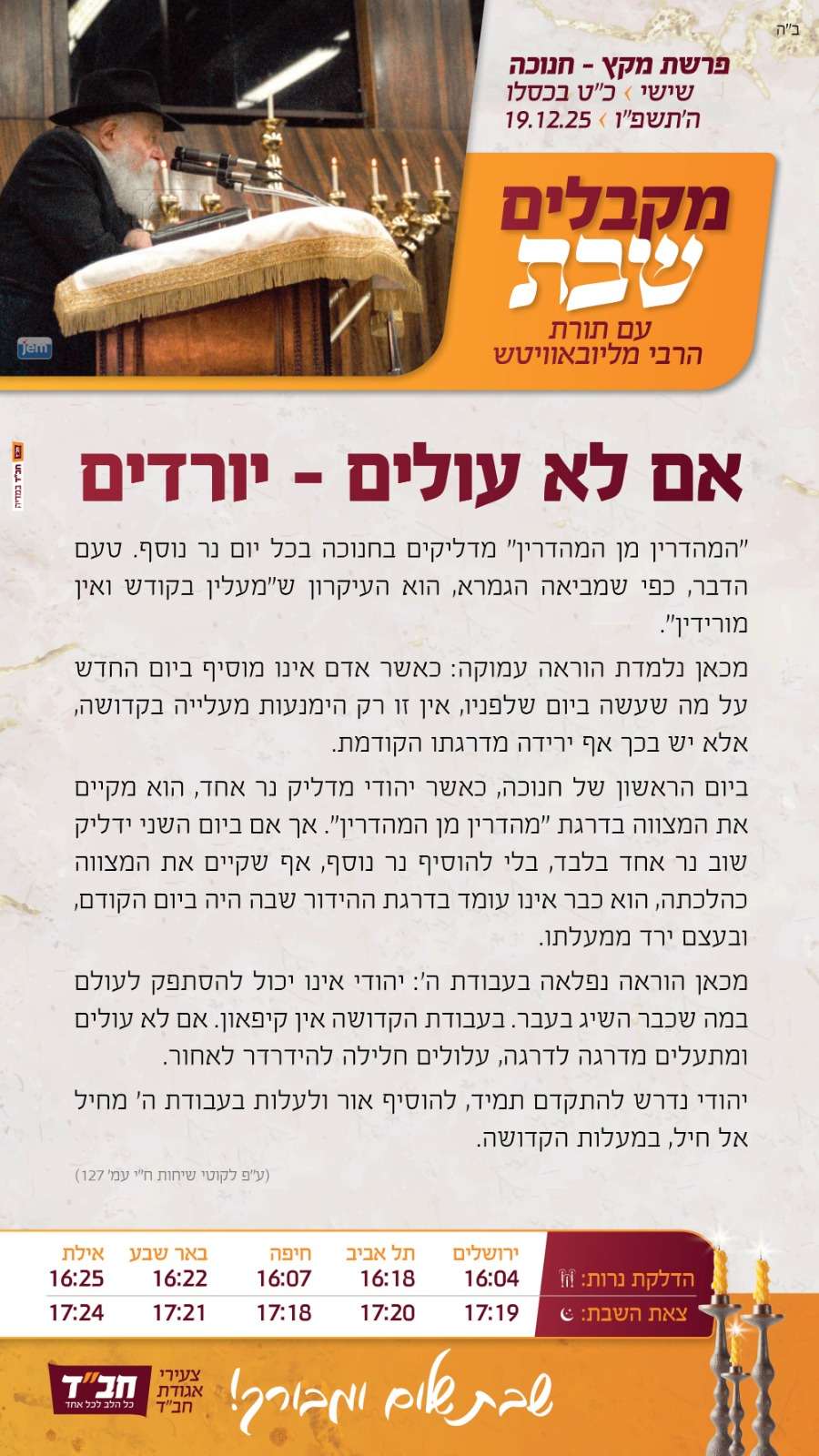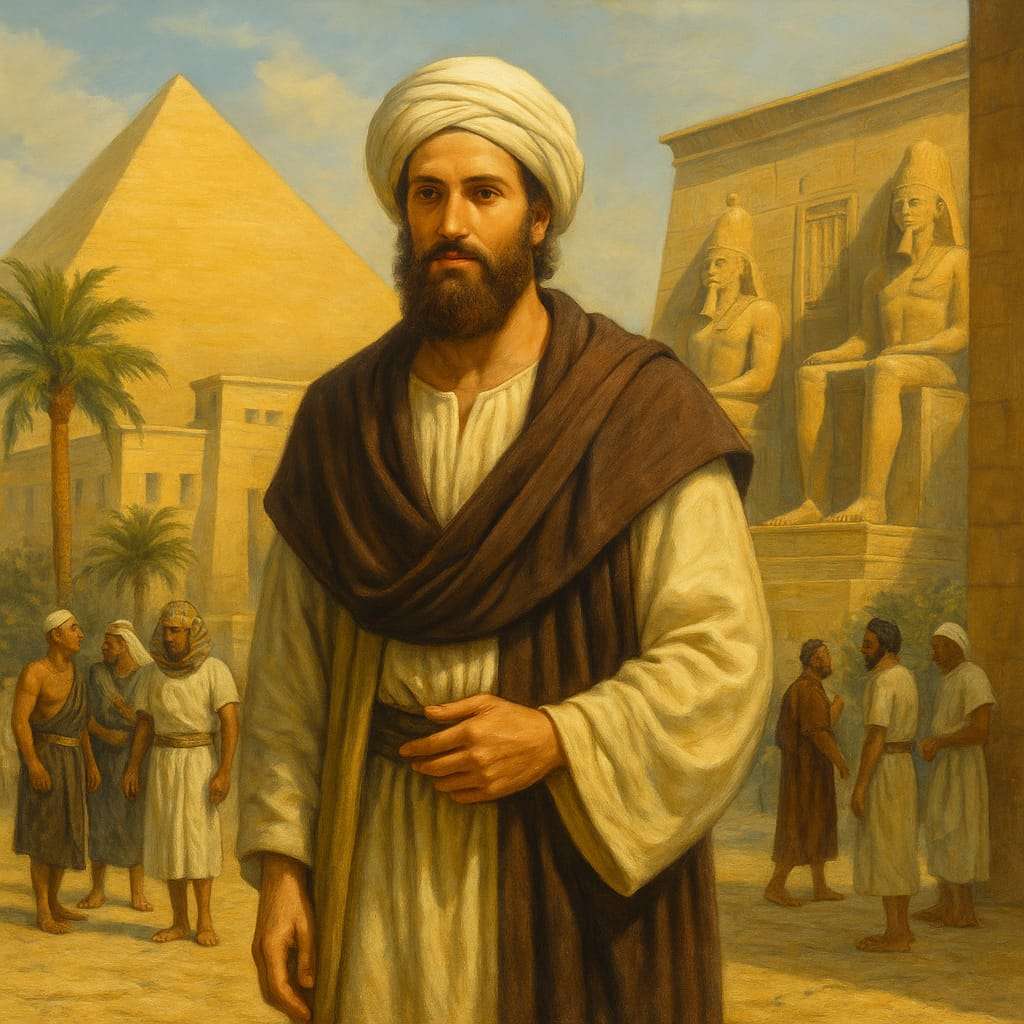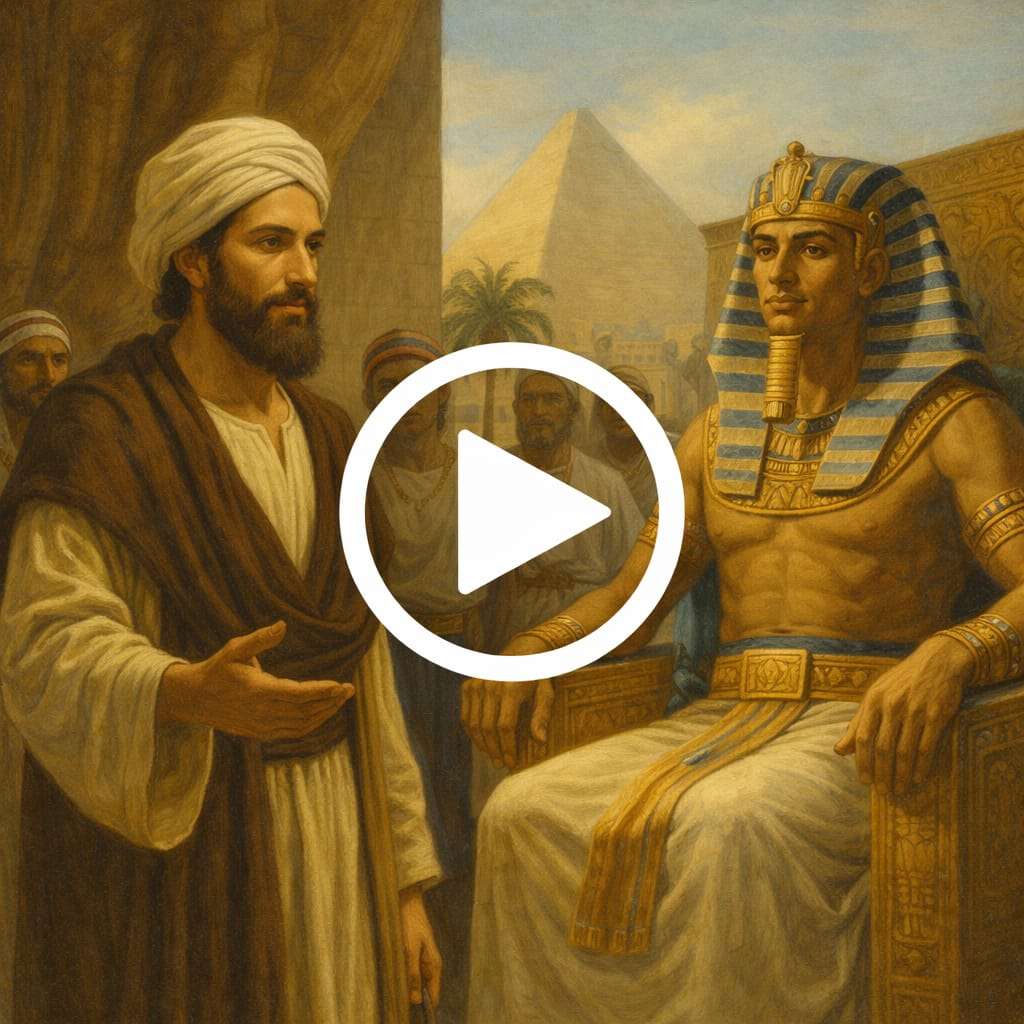7 Mitzvot Bnei Noah
First message:
1. Prohibition to serve idol worship, and belief in the one true God.
- to recognize that there is one true creator who created everything and who oversees all his creations - and this recognition makes it our duty to pray only to the one true Creator, and not to any false gods or other entities.
2. To honor God and the prohibition of expressing the opposite of a blessing towards Him.
- we are commanded not to take God's name in vain and not to curse Him but to respect Him and to speak in a respectful way about Him.
Second message:
In this message, we go through three of the seven Noahide laws:
3. To respect the sanctity of life of every human being and the prohibition of murder.
Acknowledge that every human being has been created in the image of God, and this obligates us to respect human life and not harm it. Murder is a violation of the fundamental moral laws of God's creation.
4. Respect your fellow man's property and the prohibition to steal:
Every human being has the right to his own property. Every act of stealing, robbery, or other illegal displacement of property causes social disorder and violates the right to ownership.
5. Respect of family values and prohibition of immoral sexual relationships:
The rules of marriage and family set the foundation for healthy and moral relationships. Immoral sexual behavior harms loyalty and trust in a relationship and destroys family harmony.
Third message:
In this message, we go through the sixth and seventh Noahide laws.
6. Respect animals: Prohibition to eat a limb from a living animal:
We are obligated to respect all forms of life, including animals. The prohibition to eat a limb from a living animal stresses the importance of respecting and being merciful towards all living creatures.
7. Establishment of a court system and appointing judges:
A court system with working judges is a necessity to enforce the law in accordance with the divine Noahide laws, moral code, and values that guarantee the functionality of a just, honest, and rightful society.
Fourth Message:
The seven Noahide laws, or commandements, constitute a fundamental set of moral values, intended for all human beings, regardless of origin, religion, or ethnic affiliation. They offer a framework for a life in which man lives in harmony with himself, with his fellow man, and with the Creator. These commandments are an expression of global ideas of justice and morality, which lead us to a better society.They contain many deep details, which invite every person to study and explore their depth and meaning.Each of the commandments gives us the tools to build and sustain a society where mutual respect, love, and justice are a part of our everyday lives.
Our mission is to take these values and turn them into reality, every day, in every deed.
Fifth Message:
How will the world look in future redemption?
The Rambam (Maimonides) describes redemption in the Laws of Kings 12:5
"In that era, there will be neither famine nor war; envy or competition for good will flow in abundance, and all the delights will be freely available as dust. The occupation of the entire world will be solely to know God.
Therefore, the Jews will be great sages and know the hidden matters, grasping the knowledge of their Creator according to the full extent of human potential, as Isaiah 11:9 states: "The world will be filled with the knowledge of God as the waters cover the ocean bed."
Verses from the Book of Prophets that describe the redemption and the role of the nations of the world in it.
Tzefaniah 3:9
For then I will convert the peoples to a pure language that all of them call in the name of the Lord, to worship Him of one accord.
Yeshayahu 2:2-4
And it shall be at the end of the days, that the mountain of the Lord's house shall be firmly established at the top of the mountains, and it shall be raised above the hills, and all the nations shall stream to it.
And many peoples shall go, and they shall say, "Come, let us go up to the Lord's mount, to the house of the God of Jacob, and let Him teach us of His ways, and we will go in His paths," for out of Zion shall the Torah come forth, and the word of the Lord from Jerusalem.
And he shall judge between the nations and reprove many peoples, and they shall beat their swords into plowshares and their spears into pruning hooks; nation shall not lift the sword against nation, neither shall they learn war anymore
Zechariah 8:21-22
And the inhabitants of one shall go to another, saying, "Let us go to pray before the Lord and to entreat the Lord of Hosts. I, too, will go."
And many peoples and powerful nations shall come to entreat the Lord of Hosts in Jerusalem, and to pray before the Lord.
Zecharia 14:9
And the Lord shall become King over all the earth; on that day shall the Lord be one, and His name one.
7th message:
Each person should influence, raise awareness and share the knowlege about the eternal divine system of laws given to every human being - the laws of Noah. This set of laws, numbering seven laws, brings to maximum expression and fulfillment the human abilities inherent in each person as an individual and in human society, intellectually, creatively and practically - through the freedom of choice and the ability to make decisions. All this through the guiding hand of the Almighty who knows us - His creation and commandments are meant to give us existence and a healthy and positive human environment. These ethical values and principles have been the basis of a reformed society since the dawn of civilization, and they must continue to be disseminated out of an aspiration for a reformed human society built on solid foundations of divine moral values.
The distribution and observance of these commandments will lead to cooperation between societies and countries and will result in a tremendous breakthrough in material and spiritual abundance, security and peace, the development of friendly relations between countries and peoples and universal human harmony.
Let's go back and look at the seven commandments from a slightly different angle -
1. Be faithful to God, in whose image you were created
- God created people in his image. Darkness begins when we confuse its light with an artificial or human image or power.
2. Our words are what we are
- Pay attention to the words - they represent who we are. A person is not allowed to curse you in God's name. Our words can inspire hatred or inspire peace in our hearts and around us.
3. Don't take life for granted
- "Everyone who sheds human blood... for in the image of God created man", this assumption illuminates the sanctity of human life. When a person does not appreciate the sanctity of life, he may fall into a moral abyss and allow the taking of another's life.
4. Respect the property of others - The prohibition of theft tells us that everyone should respect other people's rights to property, privacy and peace. Evil takes root when a person or nation deprives others of their rights.
5. Appreciate the family connection
- Respect the divine in the institution of marriage. The loyalty, love and respect instilled in the traditional house build a society with values of loyalty, love and respect.
6. Show compassion
- Be kind to all God's creatures. Do not cause animals unnecessary suffering. Every animal has a soul of life, and it was created for a divine purpose.
7. Pursue justice
- To recognize and uphold a set of true and eternal laws that are not arbitrary or ephemeral nor self-interested or fashionable. A system of laws based on the seven universal principles in which justice is the cornerstone of civilization and the basis for a world of human fellowship and peace.
9th Message
- The Rambam - Rabbi Moshe ben Maimon established 13 principles which constitute the fundamentals of faith for every person wherever he is.
In the following weeks we will take one of these principles and its explanation.
The first principle:
Belief in the existence of the Creator, who is perfect in every manner of existence and is the Primary Cause of all that exists.
Detail: The Creator is the cause and reason for all creatures and from him their reality and existence continue. If, God forbid, his reality goes away, then all reality will be literally nothing. And on the other hand - if, God forbid, the reality of all that exists goes away, it will neither change nor be missing from the reality of the Creator. All creatures, including higher creatures such as angels and wheels (the wheel of the sun, the wheel of the stars, the wheel of the zodiac, etc.) are all from the truth of his reality.
10th Message
The second principle out of the 13 principles of faith established by the Rambam, or Maimonides -
The belief in G‑d's absolute and unparalleled unity:
Detail: This principle emphasizes the absolute and exclusive unity of the Creator. He is the cause and the reason for everything and his unity is not a unity consisting of many parts. This foundation is expressed in the verse - 'Hear O Israel, the Lord is our God, the Lord is One.
11th Message
- The third principle of the Rambam's thirteen principals of faith -
The belief in G‑d's non-corporeality, nor that He will be affected by any physical occurrences, such as movement, or rest, or dwelling.
Detail: The Creator does not have a body or a body image and all the physical actions we know such as movement, rest, walking, standing, speaking, etc., do not belong to Him at all. Even if sometimes in the scriptures there is a use of bodily language towards the Creator, it is only because the Torah speaks in human language and borrows concepts from the world of man. In practice, there is nothing that resembles the Creator.
12th Message
The fourth principle
The belief in G-d's eternity
Detail: He is the first, and he is the last, and everything that exists, however ancient it may be, is not ancient in relation to the Creator.
The fifth principle
The imperative to worship G‑d exclusively and no foreign false gods
Detail: Only to him, is it appropriate to pray and to worship him and not to any other entity and also that it is appropriate to exalt him and publicize his greatness. This foundation rules out the stars, heavenly bodies or angels as if they have power, because the truth is that all of these do not have control or free choice, but G-d controls all their movements. Not only is no person to worship them, they are not to be used as a means to reach the Almighty through them, but one must direct one's thoughts directly to Him and let go of everything other than Him. This principle constitutes a warning and prohibition of idolatry, since referring to other sources than Hashem, blessed be He, is idolatry.
13th Message
- The sixth principal
The belief that G‑d communicates with man through prophecy
Detail: Among the members of the human race there are people with developed talents and personal and mental perfection who are worthy and qualified to receive prophecies. In the Torah it is told about many prophets and there are many verses in the Torah that bring the words of prophets.
The seventh principle
The belief in the primacy of the prophecy of Moses our teacher
Detail: Moshe Rabeinu is considered the father of all the prophets, those prophets who preceded him and all those who followed him are below his rank. Out of the entire human race, God chose Moses, and of all the creatures there was and will never be another like Moses. No screen remained between him and the Holy, and despite his having a physical body, this did not place a limit or deficiency on his abilities, and he could speak with G-d directly without the mediation of anything.
14th Message
- The Eighth Principle of Maimonides
The belief in the divine origin of the Torah.
Detail:
The Torah is from heaven. The meaning of this is that the entire Torah was given by God to Moses. In every letter of the Torah there is wonderful wisdom that is more extensive than a person can phantom. No person can achieve with his intellect and understanding the depth of the Torah. Like the written Torah, so the oral Torah was given from the mouth of God, blessed be He.
15th Message
The ninth principle:
The belief in the immutability of the Torah
Detail:
Our Torah, which is also called the Torah of Moses because Moses received it from God and passed it on to us. Nothing shall be subtracted from it, and nothing shall be added to it, neither by written addition nor by word of mouth. The Torah is whole and eternal!
The tenth principle:
The belief in G‑d's omniscience and providence
Detail:
God knows all the actions of mankind and all their thoughts. Those who say that God has abandoned the earth are wrong. His eyes are open to all the ways of mankind.
16th Message
- The 11th principle of Maimonides
The belief in divine reward and retribution
Detail: The Almighty pays a reward to those who observe the Torah and mitzvot and the greatest reward of them all is to receive a place the next world. On the other hand, if a person transgresses God's commandments, he will be punished for it. The most severe punishment is the punishment of 'being cut off', which means that a person cuts off his connection to God.
17th Message
The 12th principal
The belief in the arrival of the Messiah and the messianic era.
Detail: Every person must believe that the Messiah will come, and even if his arrival is delayed, continue to expect him every day and not set a time for him when he will come but wait and pray for him to come. All the prophets, from Moses to Malachi, taught us this way. And whoever underestimates or doubts the coming of the Messiah is denying the entire Torah because the promise of the coming of the Messiah was stated by it.
18th Message
The 13th principle of Maimonides
Belief in the resurrection of the dead.
Detail:The resurrection of the dead is one of the foundations of the Torah of Moses. Rambam ruled that whoever does not believe in the resurrection of the dead has no part in the world to come. There are several sources in the Torah and in the prophets that prophesied about the resurrection of the dead, some explicitly and some with a hint that was explained by sages.
19th Message
On Rosh Hashanah (the Jewish New Year), God judges everyone (also non-Jews) according to their actions in the past year. It is appropriate to make a good spiritual resolution for the new year, and this can create a vessel for an abundance of spiritual and physical blessings for the entire year to come.
20th Message
The seven commandments that all people of the world are commanded to do were given to Moses, our rabbi, at the giving of the Torah on Mount Sinai, along with all the commandments that the people of Israel were commanded to do. This is written by Maimonides in his book ‘Mishnah Torah.’ The question is asked—why have these commandments not been distributed to all the nations of the world until today? The answer to this is that the world was not ready to accept them yet, but times have changed, and today there is no reason or impediment, and the way is open for their distribution.
Imagine What would the world look like if every person dedicated 2 minutes of their day to praying for a better world? Imagine billions of people all over the world praying the same prayer and asking God for the same request.





